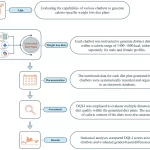A recent study has revealed that women living in rural areas face a greater burden when going through menopause compared to their urban counterparts, experiencing more physical and psychological challenges. The research, published this month in Menopause, highlights that rural menopausal and postmenopausal women report more frequent mood swings, joint and muscle pain, vaginal dryness, and urinary issues.
This study is one of the first to explore how menopause, defined as the cessation of menstrual periods, affects women based on factors like geographic location, socioeconomic status, and healthcare access. Dr. Susan Reed, a senior author of the study and an expert in menopause treatment at UW Medicine, noted that while urban-rural health disparities are well-documented in conditions such as cardiovascular disease and suicide, little research has focused on menopause in rural areas.
Dr. Reed explained, “I wasn’t really surprised by our findings, because we know there are significant differences in other health outcomes by urban or rural residence.” The study’s findings suggest that rural women not only experience more severe menopause symptoms but also have less access to resources, including healthcare providers and treatment options.
The study, which surveyed 1,531 women in 2019, also found that many rural women have limited knowledge of menopause and available treatments. Specifically, fewer rural women discussed menopausal hormone therapy (MHT) with their healthcare providers, a treatment option that can alleviate many menopause symptoms through estrogen supplementation via pills, patches, or vaginal rings.
Challenges in Accessing Care
Logistical barriers to healthcare are a significant challenge for rural women. Erin Dwyer, the study’s lead author and a third-year medical student in Montana, pointed out that rural women often face long travel times to reach specialists, with some having to drive more than an hour for a brief consultation. This distance, combined with competing demands such as work and childcare, makes it less likely that women will seek care for menopause symptoms.
In addition, many women turn to alternative treatments, such as over-the-counter herbal supplements, to manage their symptoms. Despite this, only 11% of respondents used hormone-replacement therapy, regardless of their location. This statistic highlights the barriers to accessing traditional medical treatments and suggests that misinformation and fear of risks, such as cancer, may deter women from exploring hormone therapy options.
Dr. Reed noted that many women, particularly in rural areas, choose to “tough it out” instead of seeking treatment. However, ignoring menopause symptoms can have long-term health consequences. For example, prolonged hot flashes have been linked to an increased risk of cardiovascular disease and potential cognitive decline.
The Need for Better Education and Resources
The study authors suggest that improving education about menopause and its treatments in rural communities is crucial for reducing health disparities between rural and urban women. They also advocate for more research on how menopause is managed in underserved populations and the development of tailored interventions that address the unique challenges rural women face.
Dr. Reed emphasized that interventions at midlife, such as access to menopausal hormone therapy, could reduce health disparities and improve the quality of life for women living in rural areas.
This study was conducted by Health Women and WebMD, and responses were gathered from all 50 states.
For further details, refer to Menopause, Volume 2024.
Journal Information: Dwyer, E. R., et al. “Menopause symptom burden and management across rural, suburban, and urban settings in a US population.” Menopause, 2024. DOI: 10.1097/GME.0000000000002454











